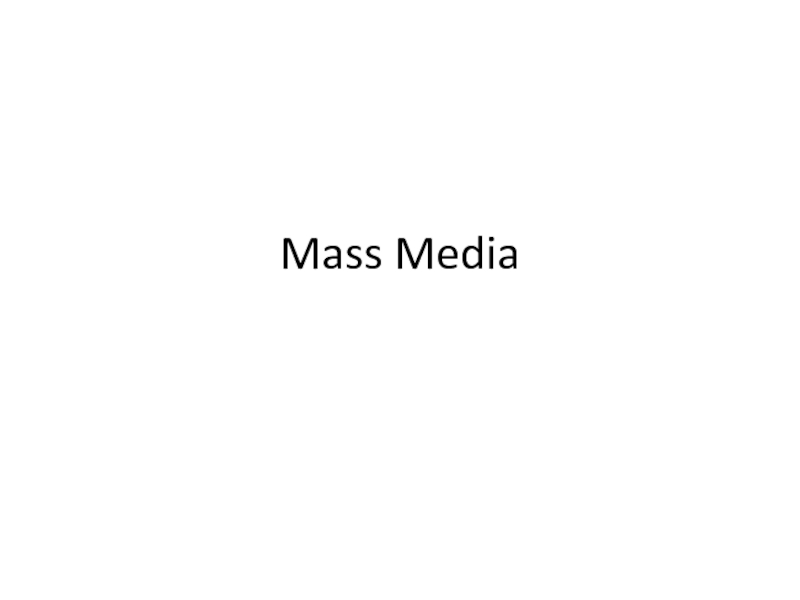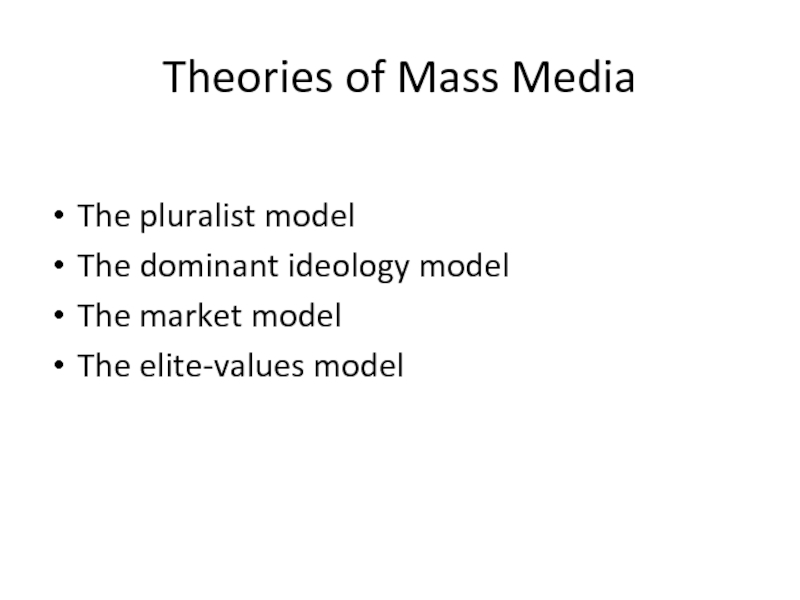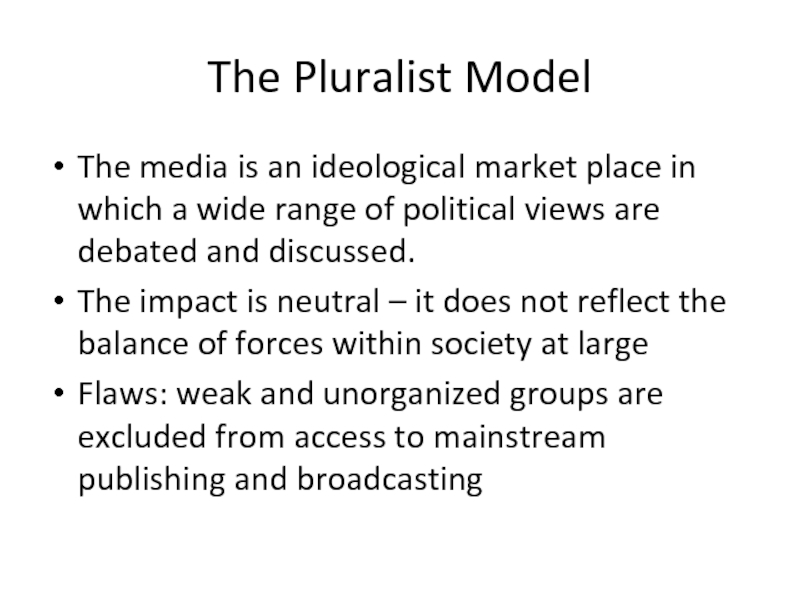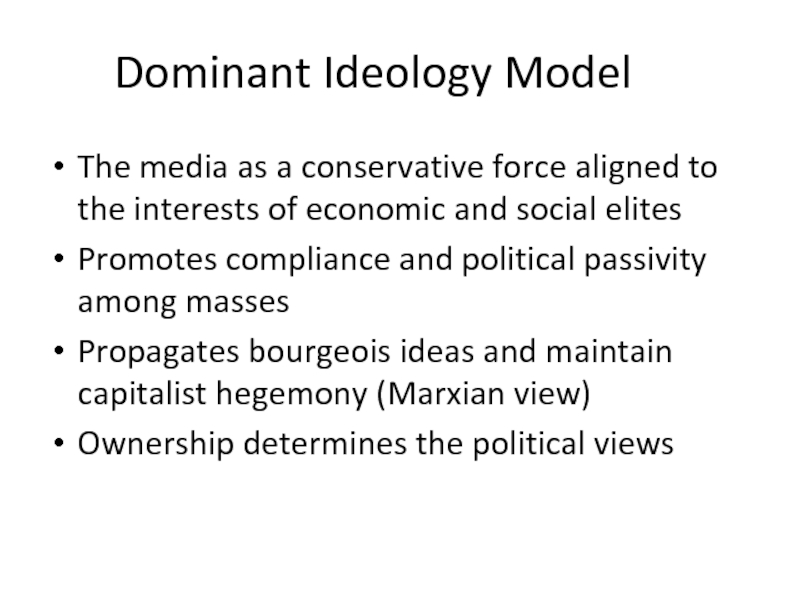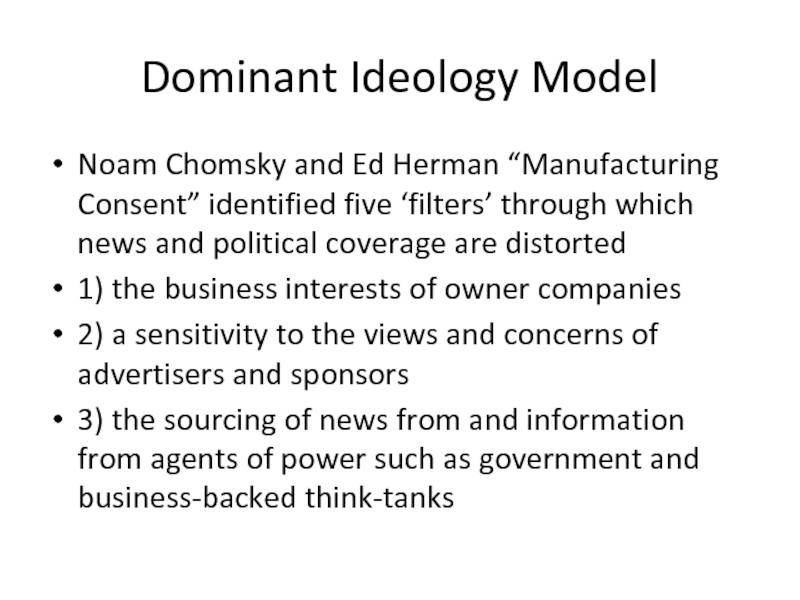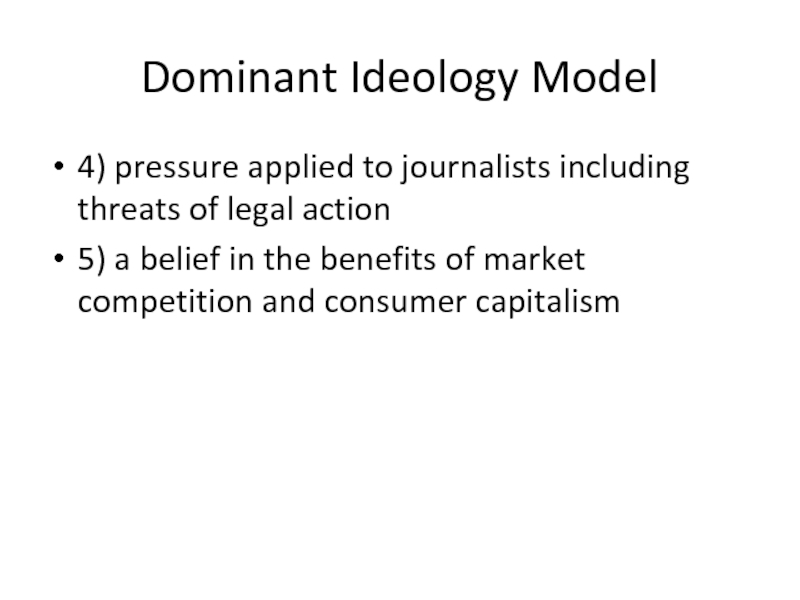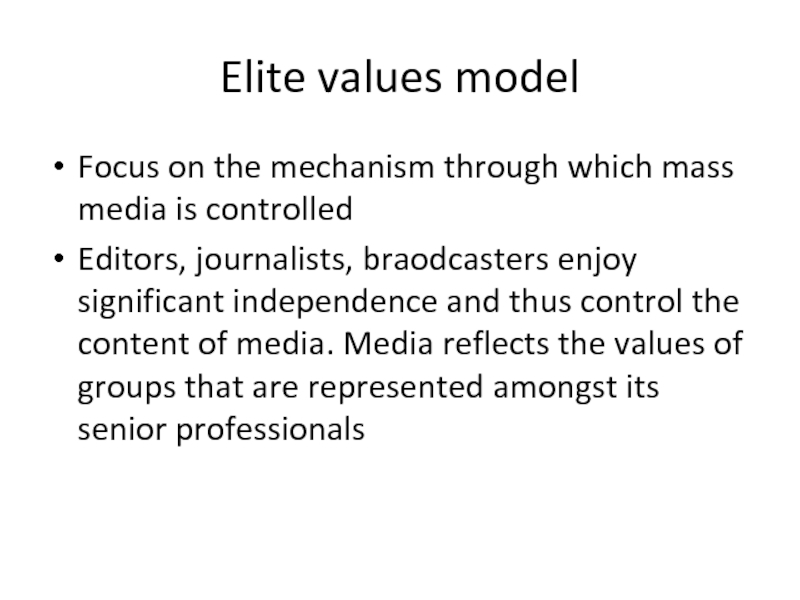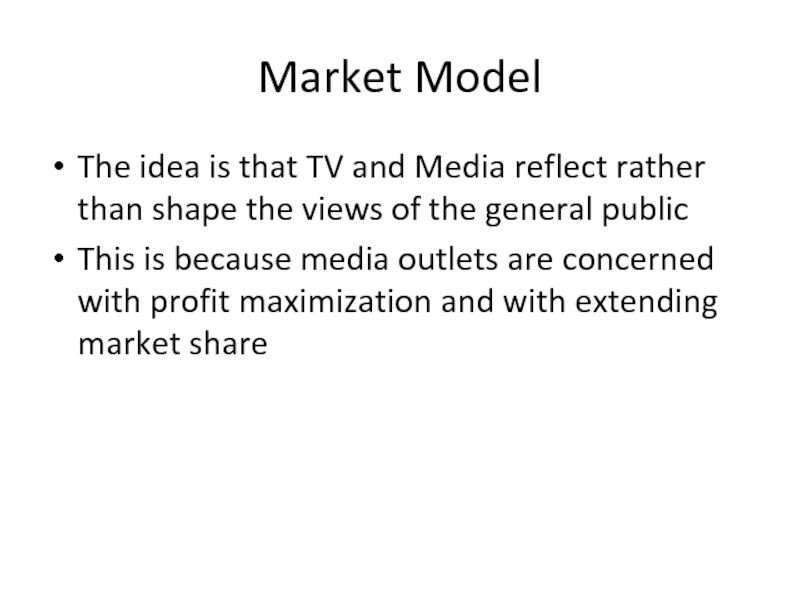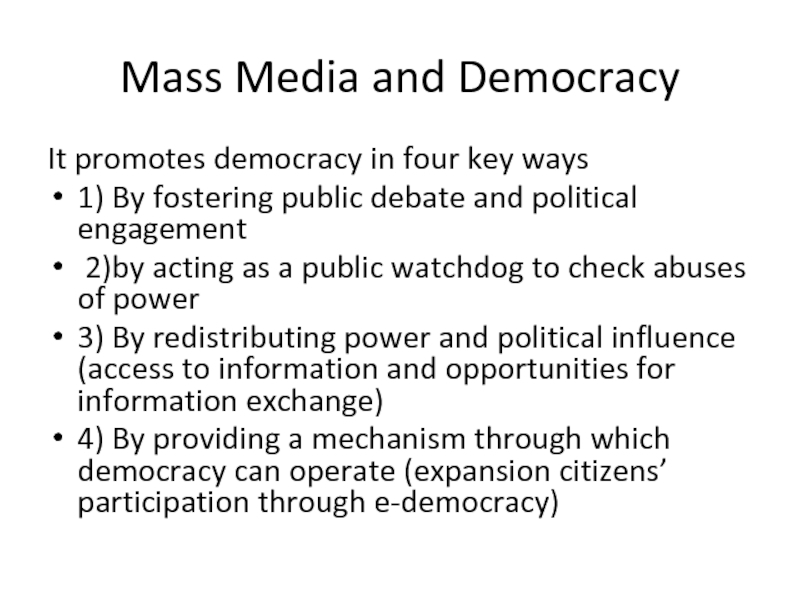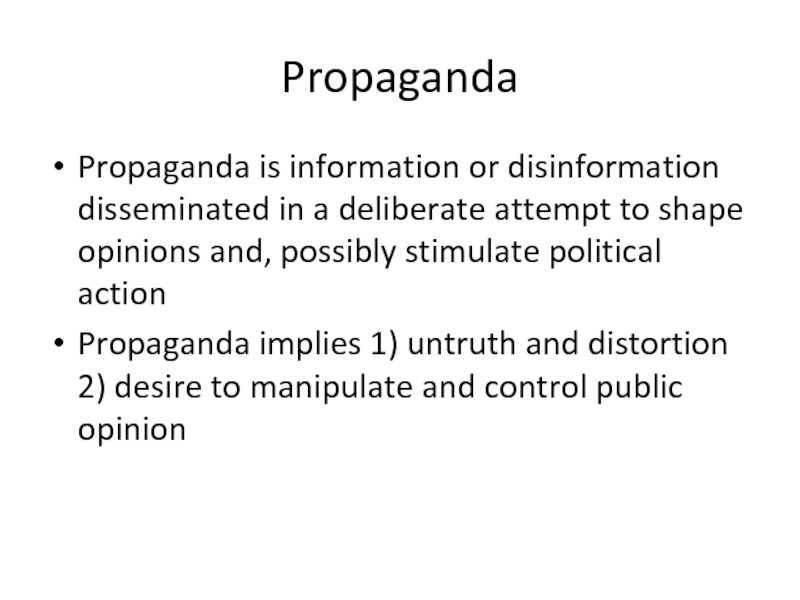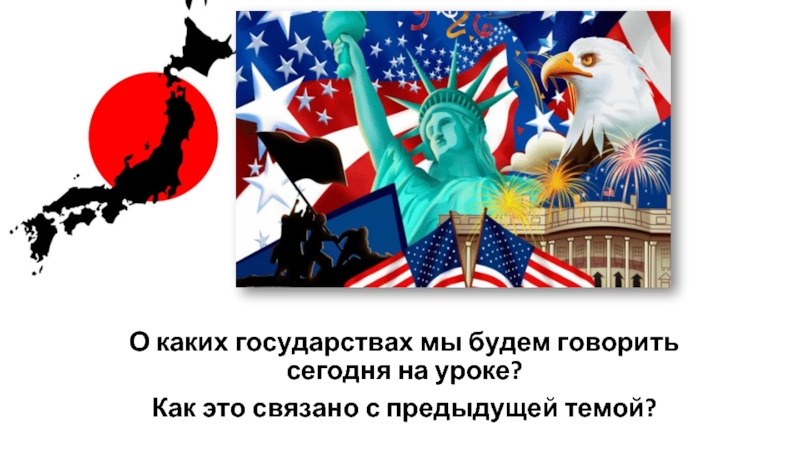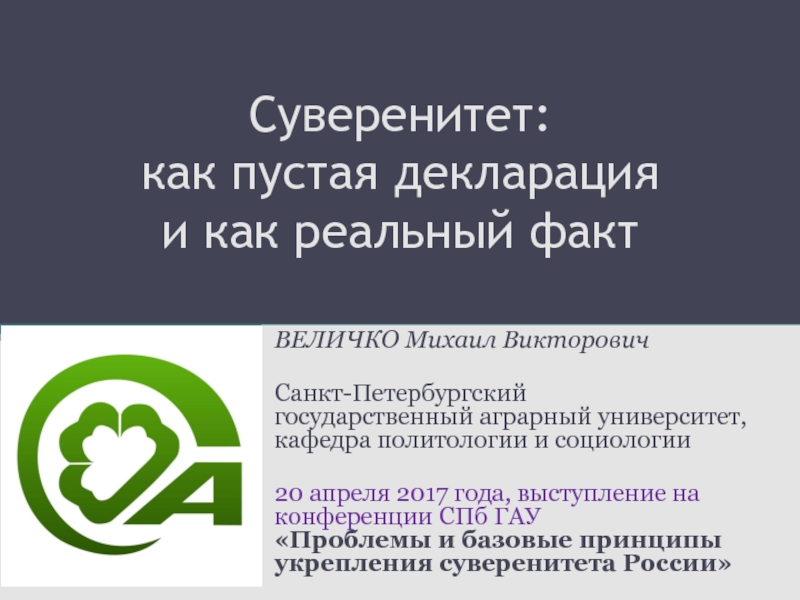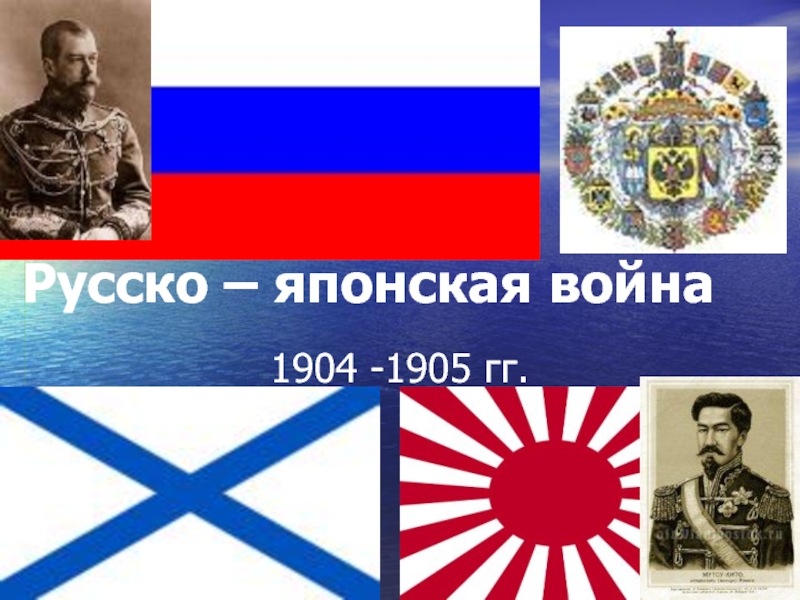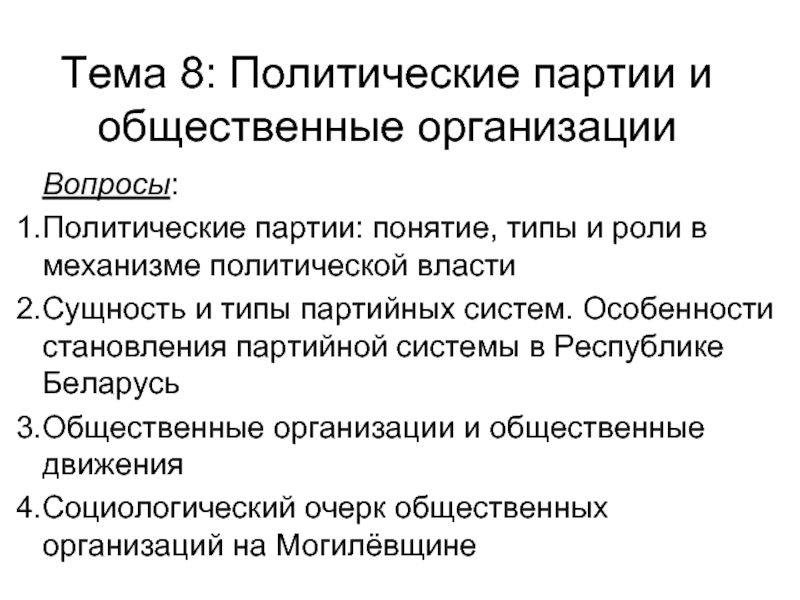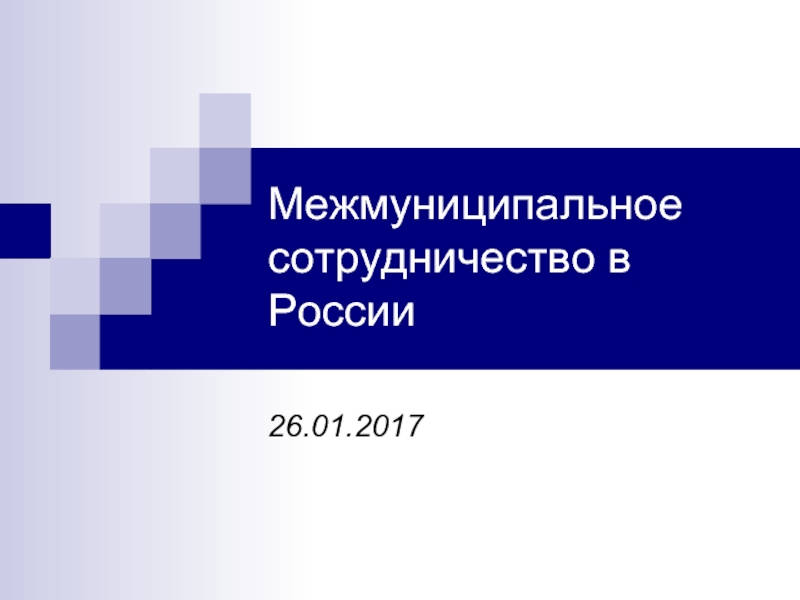- Главная
- Разное
- Дизайн
- Бизнес и предпринимательство
- Аналитика
- Образование
- Развлечения
- Красота и здоровье
- Финансы
- Государство
- Путешествия
- Спорт
- Недвижимость
- Армия
- Графика
- Культурология
- Еда и кулинария
- Лингвистика
- Английский язык
- Астрономия
- Алгебра
- Биология
- География
- Детские презентации
- Информатика
- История
- Литература
- Маркетинг
- Математика
- Медицина
- Менеджмент
- Музыка
- МХК
- Немецкий язык
- ОБЖ
- Обществознание
- Окружающий мир
- Педагогика
- Русский язык
- Технология
- Физика
- Философия
- Химия
- Шаблоны, картинки для презентаций
- Экология
- Экономика
- Юриспруденция
Mass media. Theories of mass media презентация
Содержание
- 1. Mass media. Theories of mass media
- 2. Theories of Mass Media The pluralist
- 3. The Pluralist Model The media is an
- 4. Dominant Ideology Model The media as a
- 5. Dominant Ideology Model Noam Chomsky and Ed
- 6. Dominant Ideology Model 4) pressure applied to
- 7. Elite values model Focus on the mechanism
- 8. Market Model The idea is that TV
- 9. Mass Media and Democracy It promotes democracy
- 10. Propaganda Propaganda is information or disinformation disseminated
Слайд 2Theories of Mass Media
The pluralist model
The dominant ideology model
The market model
The
elite-values model
Слайд 3The Pluralist Model
The media is an ideological market place in which
a wide range of political views are debated and discussed.
The impact is neutral – it does not reflect the balance of forces within society at large
Flaws: weak and unorganized groups are excluded from access to mainstream publishing and broadcasting
The impact is neutral – it does not reflect the balance of forces within society at large
Flaws: weak and unorganized groups are excluded from access to mainstream publishing and broadcasting
Слайд 4Dominant Ideology Model
The media as a conservative force aligned to the
interests of economic and social elites
Promotes compliance and political passivity among masses
Propagates bourgeois ideas and maintain capitalist hegemony (Marxian view)
Ownership determines the political views
Promotes compliance and political passivity among masses
Propagates bourgeois ideas and maintain capitalist hegemony (Marxian view)
Ownership determines the political views
Слайд 5Dominant Ideology Model
Noam Chomsky and Ed Herman “Manufacturing Consent” identified five
‘filters’ through which news and political coverage are distorted
1) the business interests of owner companies
2) a sensitivity to the views and concerns of advertisers and sponsors
3) the sourcing of news from and information from agents of power such as government and business-backed think-tanks
1) the business interests of owner companies
2) a sensitivity to the views and concerns of advertisers and sponsors
3) the sourcing of news from and information from agents of power such as government and business-backed think-tanks
Слайд 6Dominant Ideology Model
4) pressure applied to journalists including threats of legal
action
5) a belief in the benefits of market competition and consumer capitalism
5) a belief in the benefits of market competition and consumer capitalism
Слайд 7Elite values model
Focus on the mechanism through which mass media is
controlled
Editors, journalists, braodcasters enjoy significant independence and thus control the content of media. Media reflects the values of groups that are represented amongst its senior professionals
Editors, journalists, braodcasters enjoy significant independence and thus control the content of media. Media reflects the values of groups that are represented amongst its senior professionals
Слайд 8Market Model
The idea is that TV and Media reflect rather than
shape the views of the general public
This is because media outlets are concerned with profit maximization and with extending market share
This is because media outlets are concerned with profit maximization and with extending market share
Слайд 9Mass Media and Democracy
It promotes democracy in four key ways
1) By
fostering public debate and political engagement
2)by acting as a public watchdog to check abuses of power
3) By redistributing power and political influence (access to information and opportunities for information exchange)
4) By providing a mechanism through which democracy can operate (expansion citizens’ participation through e-democracy)
2)by acting as a public watchdog to check abuses of power
3) By redistributing power and political influence (access to information and opportunities for information exchange)
4) By providing a mechanism through which democracy can operate (expansion citizens’ participation through e-democracy)
Слайд 10Propaganda
Propaganda is information or disinformation disseminated in a deliberate attempt to
shape opinions and, possibly stimulate political action
Propaganda implies 1) untruth and distortion 2) desire to manipulate and control public opinion
Propaganda implies 1) untruth and distortion 2) desire to manipulate and control public opinion
